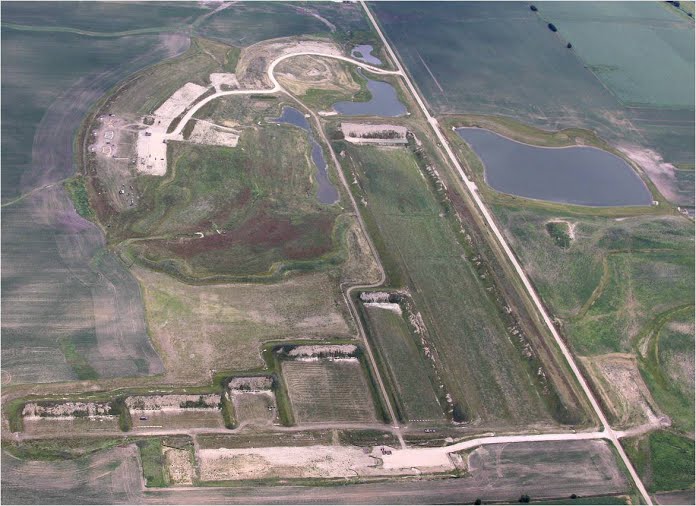
Take a look at that picture above. It is an aerial photo of the Aurora Sportsmen’s Club in Waterman, Illinois. It has rifle and pistol bays ranging from 50 feet to 600 yards. It has two Skeet fields, three Trap fields, a 5-stand course, a 12-stand Sporting Clays course, and an archery range. On top of all of that, it has three stocked fishing ponds.
Now tell me who in their right mind would confuse this with a golf course and want to regulate it in the same manner.
Gov. J.B. Pritzker (D-IL) issued Executive Order 2020-10 on March 20th. It explicitly lists firearm and ammo dealers and suppliers as essential businesses. It also said “outdoor activity” was a permitted reason to leave home so long as social distancing was observed. This included both golf course and shooting ranges.
A week later, Gov. Pritzker issued a subsequent order that ordered golf courses closed and shooting ranges such as those of the Aurora Sportsmen’s Club which didn’t have an attached gun store closed as well. They closed upon the advice of legal counsel when golf courses closed.
As a letter this week to Gov. Pritzker from Eric Callis, President of ASC, makes clear, the Illinois Department of Commerce and Economic Opportunity does not consider them an “essential business” and have said they have to remain closed.
Like many businesses, our not-for-profit club is being impacted by the stay at home order and shutdown of non-essential entities. We have followed the guidelines as proposed and with the revisions of March 27, closed the Club except to law enforcement agencies that needed to complete training to maintain certification and proficiency.
During this time we have watched as marijuana dispensaries remain open. We now see that dog groomers are going to be allowed to open. Even golf courses are being allowed to resume limited operations. Yet each time we reach out to DCEO through our elected officials, we continue to be told we can not reopen under any conditions.
So while golf courses, dog groomers, and pot shops (cannabis dispensaries) are allowed to reopen, a huge outdoor facility spread out of hundreds of acres is ordered to remain closed. Of particular relevance to this issue was the 7th Circuit’s ruling in Ezell v. Chicago which noted in reference to shooting ranges, “The right to possess firearms for protection implies a corresponding right to acquire and maintain proficiency in their use; the core right wouldn’t mean much without the training and practice that make it effective.”
In the letter cited above, Callis asks Gov. Pritzker for a written explanation with specifics as to why they aren’t allowed to reopen.
Ranges, training, and practice for proficiency protected under Heller, McDonald, and Ezell are not afforded the same opportunities as golf courses, dog groomers, and marijuana dispensaries?
Non-constitutionally protected activities are given more deference and protection than those enumerated via the Bill of Rights under the Second Amendment and court rulings?
Are hundreds of people allowed at indoor stores, yet we are not allowed to open up a 300-acre outdoor facility?
Can’t we re-open if we follow the same type of guidelines as golf courses?
The club has also appealed to US Attorney General William Barr who has told US Attorneys to be on the lookout for overly strict state and local orders which tread upon constitutional rights.
We, therefore, ask you to determine if those orders barring the use of indoor or outdoor ranges for the “training and practice” of firearms to maintain proficiency as enumerated in Ezell violate fundamental constitutional rights and are an overreach as you described in your memo.
We find it odd that dog grooming businesses in confined spaces are allowed to open, conduct business, and see people while our 300-acre outdoor range is not. We find it troubling that there appears to be a political double standard for outdoor recreational activities that are not protected by the Constitution with enumerated rights but may be more politically correct. We also find it inexplicable that drugs still considered to be illegal for sale and possession under Federal law are allowed to be sold, used, and shops that sell marijuana are open for business while actual legal conduct and constitutionally protected activities are being denied.
We appreciate your help in this matter and look forward to hearing from either your office or your representative.
According to the DeKalb County Health Department, they have had 101 confirmed cases of COVID-19. The overwhelming majority of the over 50,000 cases of COVID-19 in Illinois are in Chicago and Cook County. What might be appropriate for the dense urban areas of Chicago and its suburbs is not the same for rural DeKalb County where the club is located. Indeed, the Illinois Department of Public Health maps show zero cases in the club’s location of Waterman, Illinois.
Keeping the Aurora Sportmen’s Club closed is not good public policy nor, in my opinion, constitutional. I hope someone in Springfield wakes up sooner than later.
